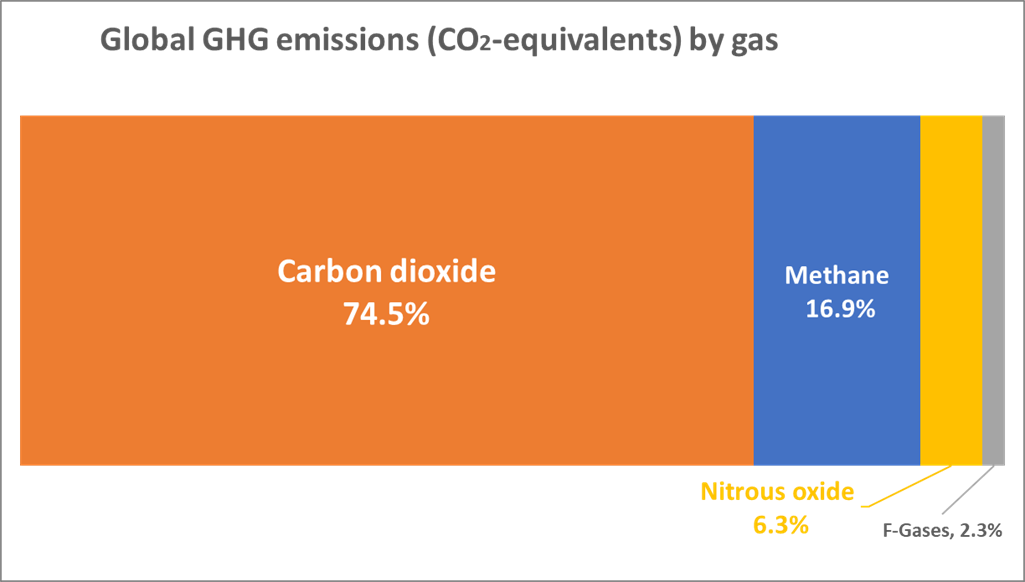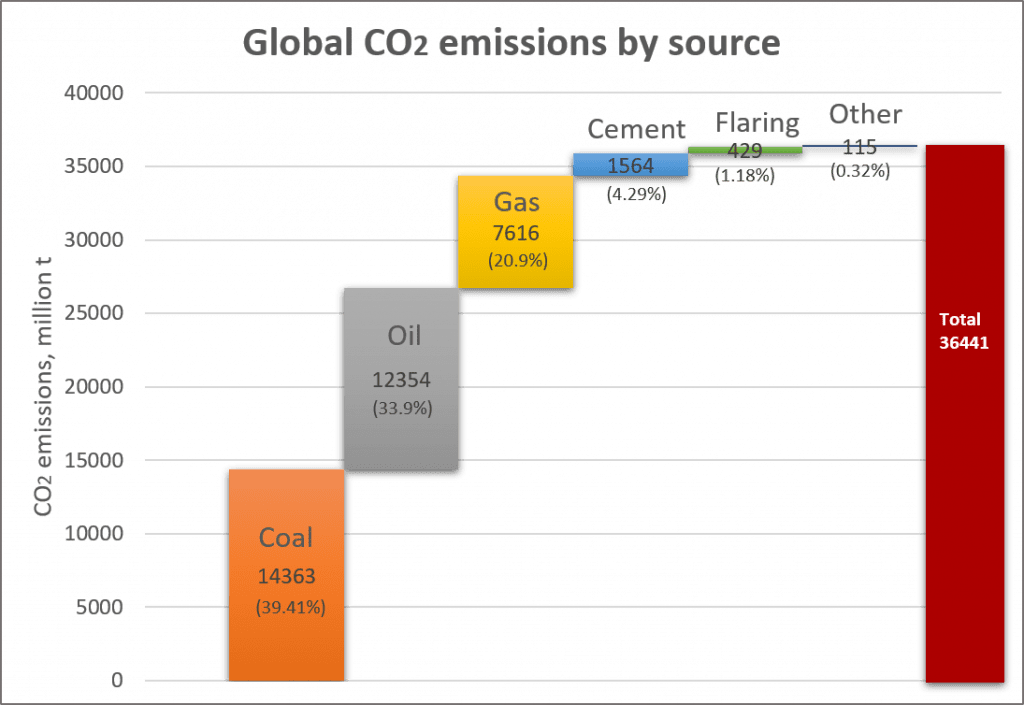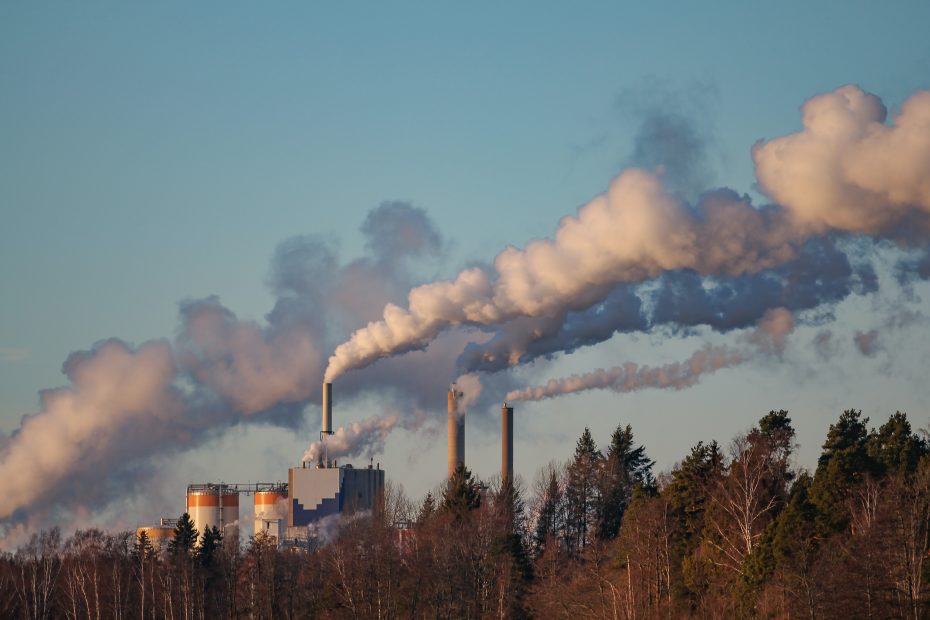Welcome back, readers! In the past few articles, we have seen that anthropogenic carbon dioxide (CO2) emissions are the main driver of climate change, and the CO2 concentration in our atmosphere is past 410 ppm. Our emissions are warming our planet like a blanket, and the international commitments are not even close to limiting the temperature well under 2 degrees Celsius.
Today, I would like to tell you more about the main sectors & sources responsible for these emissions to continue our journey to find solutions and make responsible choices every day as individuals, communities, business leaders, or government.
Global greenhouses gas (GHG) emissions
We collectively emit around 50 billion tCO2 equivalents each year. These emissions are measured as the sum of different gases: CO2, methane, nitrous oxide, F-gases.
Let’s start with the breakdown of the global GHG emissions by gas to see how much each gas contributes. Using the latest available data on the World Resource Institute’s Climate Watch, and arranging them in a simple chart (below), we can see that carbon dioxide (CO2) was the main contributor of total emissions with 74,5%, methane (CH4) accounted for 16.9%, nitrous oxide (N2O) 6.3% and F-gases 2.3%.

Carbon dioxide emissions
We focus our analysis on carbon dioxide, which makes up about three-quarters of our global greenhouse gas emissions.
Where do these CO2 emissions come from? They come mainly from the burning of fossil fuels and cement production.

We are talking about a total of 36.44 billion tCO2 in 2019 (from a previous 36.42 billion tonnes in 2018).
As you can see, the majority of CO2 emissions comes from burning coal (39.41%), oil (33.90%), and gas (20.9%). After that, we have emissions from cement production, which makes for 1.5 billion tCO2 (4.29%), and flaring 1.28% (that is the practice of burning associated gas generated during industrial processes, e.g., oil & gas extraction).
*The uncertainty for the global estimates is about ±5 %.
The energy sector
The main responsible sector? As you might have guessed, it’s the energy sector.
Let’s take a look at the IEA’s CO2 emissions data. We find that the energy sector alone was responsible for 33.4 billion tCO2 (2019), had a reduction in 2020 due to COVID-19 at 31.5 billion tCO2 and is already at 33 billion tCO2 (at April 2021)
Now you can understand why we keep hearing and reading about the need to “decarbonize” the energy sector. We need to rapidly reduce the use of fossil fuels (coal, oil & gas) by displacing them with low-carbon energy sources.
Let’s remember that, today, we collectively emit around 50 billion tCO2eq: the energy sector is a good place to start, but we need deep reductions across all sectors to have a chance at winning the climate crisis.
In my next articles, I will discuss the one thing you can do to reduce your energy-related emissions. Stay tuned!
Climate change is a complex topic, and there is no single solution to solve this huge (global and local) challenge. However, I believe that we can act and take responsibility for more sustainable choices every day – as a person or community, business leader, or government. If you would like to know more about my blog, visit protegoterra.org.
Thanks for reading!
If you enjoyed this article, subscribe to Protegoterra’s newsletter.

